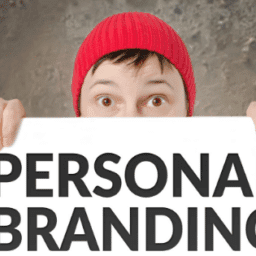Are you a business owner looking for employees? If so, then you might be interested in how Covid-19 vaccination requirements are affecting hiring. The Centers for Disease Control and Prevention (CDC) recommend that all healthcare personnel who contact patients should receive the vaccine to protect themselves and their patients against contracting the virus. However, according to recent reports, many businesses struggle to find qualified applicants due to this recommendation. We will discuss how this is affecting your hiring process and what you can do about it!

In addition to the CDC’s recommendations, many states also require that their employees be vaccinated against Covid-19. In some cases, this means you will need to hire a handful of new people for your team if you are in such a state or any other place with similar requirements. If there is an insufficient number of qualified applicants, then businesses will need to adjust their requirements.
Some have found hiring outside consultants as one way around these challenges. Still, others argue it doesn’t solve all of the problems because they may not always be available when needed and can cost considerably more than just filling the position oneself.
If employing staff members does not work out for your business due to these regulations, then consider outsourcing needs instead where contractors are instantly on call for your company in a remote capacity. In addition, some employers, such as those in healthcare, childcare services, jobs where workers interact closely with passengers at airports, etc., require employees get vaccinated before they can work because they’re considered more vulnerable populations exposed to this disease.
The Covid-19 vaccine is one of the most common requirements for people looking to work in certain industries, but it’s not a requirement for all positions. This can be confusing and stressful because there are so many different health standards that may vary depending on what type of job you’re applying for.
Some employers have asked their employees about getting the vaccine during interviews. However, not all companies will require proof of vaccination for positions if they still think it may be too burdensome to implement in a company with many different job roles. But because this particular vaccine isn’t mandatory now for these more vulnerable occupations, as we’ve seen before, like Swine Flu (1976), influenza vaccines have been an important tool at reducing infection rates among those who choose to get vaccinated and those that don’t want to get the shot.
But what about those employees who just can’t come around? They have their reasons for not wanting to take the vaccine after weighing them against possible benefits. It seems unreasonable to require these people to get vaccinated.
Companies need to keep an open mind to those opposed to the vaccine while also taking the necessary steps to keep their work environment safe.
The Equal Employment Opportunity Commission is the group responsible for enforcing workplace anti-discrimination laws. It has come to light that companies are required by law, under certain conditions, to provide reasonable accommodations for qualified employees who cannot be vaccinated due to a medical condition or religious beliefs.
However, if an employee wants no part of it and would rather quit – employers may not terminate their employment based on these grounds because they would violate federal anti-discrimination laws, which are enforced through Title VII of the Civil Rights Act as well as other relevant legislation such as Americans with Disabilities Act (ADA). So, on the one hand, there’s nothing wrong with encouraging people to be voluntarily immunized in your company. Still, you must make sure that any incentives offered don’t seem overly coercive given.
The EEOC recently released guidelines on how employers should handle the new vaccine requirements. For example, employers cannot force employees to get vaccinations; they can offer incentives to share their vaccination records and keep those confidential voluntarily. All other information about an employee’s health is also private and may not be shared with anyone outside of that person’s medical team if it would violate HIPAA privacy laws.




